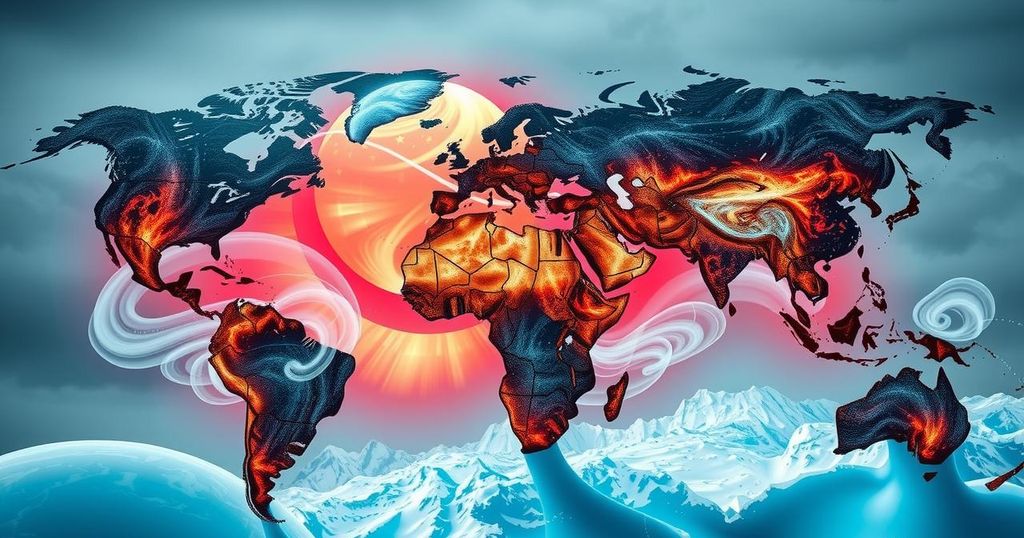The year 2024 has been marked by severe climate change impacts globally, with record-breaking heat and extreme weather events. WMO reports that this year is set to be the hottest on record, necessitating urgent action from nations to cut emissions and transition to renewable energy. The escalating climate crisis has led to significant loss of life and economic tolls, highlighting the importance of international collaboration in addressing these challenges.
In 2024, the world continues to grapple with severe impacts from climate change, which have affected diverse ecosystems, economies, and communities at unprecedented scales. According to the World Meteorological Organization (WMO), this year is forecasted to be the hottest on record, marking the culmination of a decade dominated by extreme heat linked to human activities. Greenhouse gas emissions remain at alarming levels, exacerbating future heat retention across the planet.
UN Secretary-General António Guterres lamented, “Today I can officially report that we have just endured a decade of deadly heat. The top ten hottest years on record have happened in the last ten years, including 2024.” He emphasized the critical need for immediate action, urging countries to significantly reduce emissions and transition to renewable energy sources in order to avert further climate catastrophe.
WMO’s upcoming reports, set for publication in early 2025, will consolidate global temperature data and provide a comprehensive analysis of the state of the climate. WMO Secretary-General Celeste Saulo remarked, “In my first year as WMO Secretary-General, I have issued repeated Red Alerts about the state of the climate… If we want a safer planet, we must act now. It’s our responsibility. It’s a common responsibility, a global responsibility.”
The dire consequences of climate change are illustrated by extreme weather events that have resulted in loss of life and economic hardship across the globe. Events such as record-breaking rainfall, floods, and intense heat waves have highlighted the urgent need for effective climate adaptation strategies. In 2024 alone, climate change was responsible for twenty-six of the twenty-nine significant weather events analyzed, leading to approximately 3,700 fatalities and the displacement of millions.
In response to the increasing risks associated with extreme heat, experts from various international bodies convened in December 2024 to design a comprehensive framework aimed at mitigating these threats. The WMO is concurrently advancing the Global Greenhouse Gas Watch initiative and preparing for the International Year of Glaciers’ Preservation in 2025, promoting heightened awareness and action around the cryosphere.
As WMO anticipates its 75th anniversary, it remains committed to fostering international collaboration to enhance climate services and public health initiatives aimed at addressing the pervasive effects of climate change. The organization’s collective efforts underscore a pivotal moment in combating climate challenges and ensuring a sustainable future.
The article discusses the significant impacts of climate change experienced globally in 2024, a year marked by unprecedented heat and extreme weather phenomena. It highlights the contributions of human activities to the rising levels of greenhouse gases and pinpoint the implications of these changes on ecosystems, economies, and communities. The article mentions critical reports and future initiatives aimed at mitigating climate-related issues and fostering international cooperation in addressing the severe repercussions of global warming.
In summary, the year 2024 has underscored the escalating threat of climate change, manifesting in record temperatures and widespread extreme weather events. The urgent need for global action to reduce emissions and adapt to changing conditions is clear. With initiatives underway to monitor climate impacts and promote cooperation, stakeholders must prioritize climate action to secure a sustainable future for the planet.
Original Source: reliefweb.int






